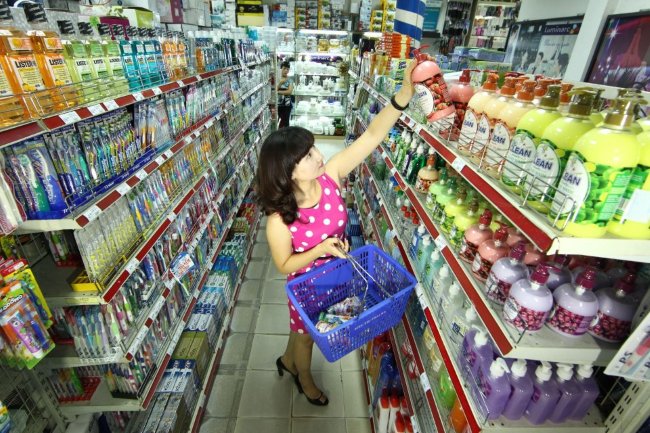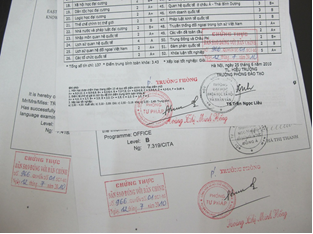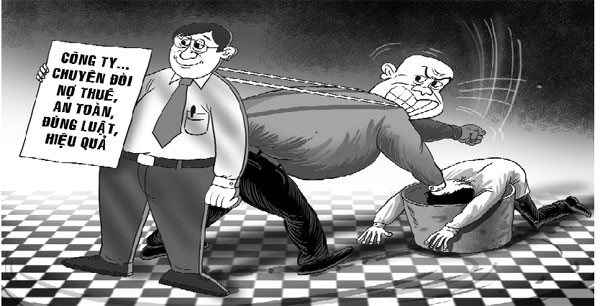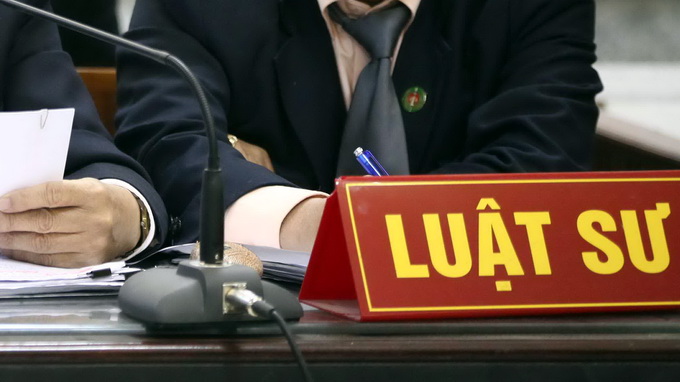In consumer protection law, the concept that consumers can only be individuals, or include both individuals and organizations, leads to various legal consequences. This article provides some explanations regarding the concept of consumers in the aspect of whether organizations should be considered consumers and how the current Draft Law on Consumer Protection should approach this issue.
1. The Position of Consumer Protection Law
First and foremost, it is necessary to affirm that the entities participating in buying and selling, exchanging goods, and services relationships are the subjects of private relations, regulated by civil law, characterized by voluntariness, equality, and freedom of will. Civil law is based on the assumption that there must be equality between the parties involved in the relationship. When one party agrees to certain transaction conditions, it is their desire, and the law does not intervene in that desire. Only in cases where there is a restriction on the will of one party, leading to the loss of the ability to negotiate equally (such as loss of civil capacity, limited civil capacity, deception, coercion, etc.), civil law will intervene in this agreement by granting certain powers to the parties to restore their rights, such as the right to request the declaration of the invalidity of the contract, the right to claim compensation for damages, etc.
The relationship between consumers and suppliers of goods and services is also a private relationship and thus is regulated by civil law provisions. The issue here is that inequality inherently exists in the relationship between consumers and suppliers of goods and services. “In consumer transactions, unfair commercial practices are becoming very common.... Goods and services are marketed by organized units and by trained businesspeople. Untrained consumers are not in an equal position with businessmen who are trying to persuade them to buy goods and services on terms favorable to the seller. Therefore, consumers need legal protection.” This analysis also shows that the principle of caveat emptor (let the buyer beware), which lets consumers be aware and decide, is no longer suitable as a general principle governing all transactions. Although, in all cases, consumers theoretically have the freedom to choose whether to use a type of goods or services, that choice is not based on full information (only suppliers with better economic and technical conditions can fully understand the goods and services they provide); consumers also lack the ability to negotiate (due to lack of time, information, and professionalism), and few suppliers are patient enough to negotiate with all consumers (lacking time, personnel, and costs when serving a large number of consumers). In all circumstances, in all economies, whether developed, developing, or slow-developing, the information imbalance between consumers and suppliers always exists. This is the main reason the State must intervene in these private relationships to protect important social values such as health, human life, trust in State protection, and economic stability. Proper and effective consumer protection will greatly contribute to promoting the development of the commodity economy. On that basis, the fundamental reason for the State's intervention in the relationship between consumers and suppliers of goods and services is the consumers' weaker position in their relationship with service providers. This intervention supplements necessary protective measures (in addition to those provided by civil law) to remedy the disadvantages consumers suffer.
2. Comparing the Intervention Measures of Consumer Protection Law with Civil Law
One of the significant differences distinguishing civil law from consumer protection law is that while civil law is based on the assumption that there is always equality among the entities participating in civil law relations, consumer protection law, on the contrary, assumes that there is always inequality between consumers and suppliers of goods and services. For example, suppose a credit contract is entirely concluded based on agreement and voluntariness between a bank and an organization. This contract includes a clause stating, "the borrower agrees that the lender has the right to declare an event a breach of contract and use this as a basis to declare the loan due." From the consumer protection perspective, this contract would be examined for potential inequality arising from the bank abusing its advantageous position when proposing this clause. In contrast, from a civil law perspective, the contract is mainly reviewed based on whether it was concluded voluntarily.
Illustrative image (source: internet)
This approach leads to the emergence of doctrines on unfair trade practices, consumer contracts, and product liability. These are three crucial components of consumer protection law. Based on the unfair trade practices doctrine, an act may not be considered a violation of civil law but could be deemed a violation of consumer protection law if there is evidence of abuse of consumer vulnerability, serving as a basis for consumers to claim rights restoration. Concerning the consumer contract doctrine, in a typical civil contract, the party claiming damage due to the contract and seeking rights restoration must prove inequality in contract conclusion (e.g., through evidence of coercion, deception, or other factors impairing cognition or determination). Conversely, in contracts concluded between consumers and suppliers, the disadvantaged consumer can request contract cancellation without proving inequality, only needing to point out an unfavorable clause. Similarly, in the product liability doctrine, suppliers must be responsible for damages caused by product defects to consumers, as they are in a position to know those defects better and have a higher capability to eliminate them.
3. Organizations as Consumers from the Consumer Protection Perspective
From this viewpoint, considering the relationship between organizations and suppliers of goods and services, the weaker position is significantly reduced. Organizations often have many resources (including human, intellectual, and financial resources), have tight organizational structures, mechanisms of operations, and management suitable to their characteristics. Representatives of organizations in relationships with suppliers of goods and services – representing the interests of many – must typically be selected and bound by the organization, subject to specific control and supervision mechanisms, and bear responsibility, even legal responsibility. This responsibility compels the representatives to strive for the collective interest in dealings with suppliers of goods and services. Of course, some believe that personal interests create a higher motivation when representing the collective interest. However, in the most general sense, representing the collective imposes certain pressures on the transaction executor, and it allows the transaction executor to access better tools (such as advisory councils, bidding mechanisms, technical staff support, etc.), unavailable to individuals. Moreover, suppliers offer organizations more negotiation opportunities than individuals. When the weaker position in a transaction no longer dominates, establishing protective measures is unnecessary. Limiting intervention in organizational transactions means requiring organizations to emphasize self-protection responsibility, thus demanding high responsibility from organizational representatives.
Even in cases where organizations transact, the transaction results can lead to individuals being actual consumers (e.g., businesses buying food for workers' lunches). However, using this consumer purpose to argue that organizations deserve protection like actual consumers is inaccurate. Protecting organizations in supplier relationships arises only when transactions directly occur with suppliers. As analyzed, the weaker position is not significant. For specific damages that members of the organization suffer when directly consuming goods and services bought by the organization, no legal hindrance exists preventing them from claiming rights restoration as consumers. Consumer protection law only requires consumers to be recipients of goods and services for consumption, not necessarily engaging in direct transactions with suppliers. If suppliers fail to comply with commitments, causing harm to the organization, the organization can fully apply civil law measures to claim its rights. Thus, the goal of protecting consumers and the organization's interests as a transaction party is achieved without considering organizations as consumers.
4. Legal Consequences of Considering Organizations as Consumers
Considering organizations as consumers leads to scenarios where completely equal relationships still experience legal intervention and consumer protection, causing suppliers damage even though they did not abuse the buyers’ vulnerable position. This not only harms businesses but also reduces organizational representatives' civil transaction responsibilities, affecting the order and stability of civil transactions. This notion also creates challenges in application, especially in defining whether an organization in a specific transaction is considered a consumer. When identifying a consumer as someone receiving goods and services for consumption purposes, determining whether an organization buys goods or uses services for commercial or consumption purposes is not easy. For example, organizations borrowing money to build welfare housing for employees should be seen as consumption or commercial. Or an organization buying food for workers' lunches surely will face arguments that lunch costs are part of labor reproduction and serving the general business purpose, not consumption, while others will counter that the organization clearly bought food for immediate consumption, thus it should be considered consumption. Therefore, in reality, differing legal interpretations could lead to the same transaction being viewed as a consumer transaction in one place and treated with consumer protection interventions, while elsewhere, it is not seen as a consumer transaction and such interventions are not applied.
Other countries' laws clearly define consumers from the protection need perspective. For example, in the summary report on international experience in consumer protection law creation by the Ministry of Industry and Trade, based on a study of consumer protection laws in 15 countries, only South Korea considers legal entities as consumers. Most countries define consumers as individuals, reflecting the view that consumer protection law primarily protects individuals, since legal entities have better positions and conditions compared to individuals in relationships with suppliers, obviating the need for consumer protection law to intervene in their relationships.
5. The Draft Consumer Protection Law of Vietnam Should Align with Global Trends
In many aspects, the Draft Consumer Protection Law (Draft) bases itself on experiences and practical consumer protection laws from various countries, particularly in protecting disadvantaged consumers to balance transactions. The protective measures in the Draft are fundamentally established in this direction, encompassing foundational protective measures established based on common practices, such as using unfair trade practices (through information responsibilities for consumers, regulations on deceitful and misleading acts, and harassment of consumers), utilizing consumer contract doctrines, and product liability doctrines. These measures reinforce Vietnam's legal mechanism for consumer protection, providing consumers with additional tools to claim their rights and allowing the State to intervene in supplier-consumer relationships. They also enable consumer protection organizations to file lawsuits to defend consumer rights when supplier acts violate them. However, these tools and intervention possibilities only prove effective when applied to true consumer relationships, i.e., protecting disadvantaged consumers in dealings with suppliers. Currently, the definition of a consumer in Article 3, clause 1 of the Draft includes both organizations and individuals. This means consumer protection measures apply when organizations transact with suppliers. As analyzed, using legal protection tools for such instances will cause adverse legal consequences, negatively impacting the stability of civil transactions. Organizations will depend on the State instead of using their conditions for self-protection. For example, without checking costs, they may make purchases and later rely on reasons like the supplier's failure to list prices or price increases before using marketing gimmicks to attract their purchases (violating obligations under the Consumer Protection Law) to demand transaction cancellation or compensation.
To respect the civil law principle of free agreement, enhance the responsibility of organizational representatives in civil transactions, and align with international practices, Vietnam's Consumer Protection Law should not apply consumer protection measures to organizations or, in other words, should not consider organizations as consumers. This also helps achieve one of the Draft's guiding principles, “Protect the legal rights and interests of consumers while ensuring the rights and legitimate interests of business organizations and individuals.”
Source: The Electronic Portal of the Institute for Legislative Studies
 Article table of contents
Article table of contents






.Medium.png)
.Medium.png)
.Medium.png)
.Medium.png)
